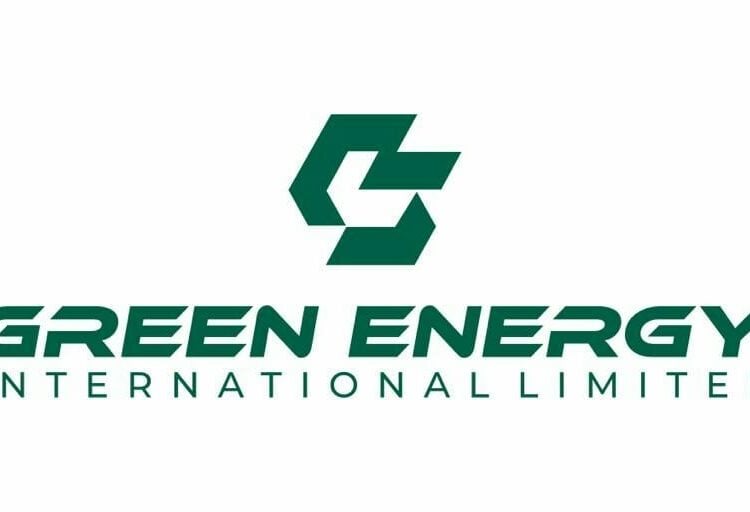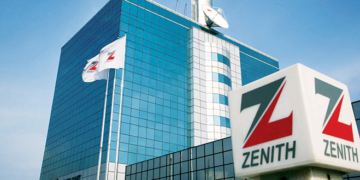Green Energy International Limited (GEIL) has completed its fifth oil export from the Otakikpo Onshore Crude Oil Export Terminal, marking continued operations at Nigeria’s first wholly indigenous onshore crude export facility in over five decades.
The chief executive officer/chairman of Green Energy International Limited (GEIL), Prof Anthony Adegbulugbe, who made this known, also revealed that a 30-day construction lull occurred during the development of the Otakikpo Onshore Export Terminal, during which the project incurred losses amounting to $7.5 million.
Speaking when a delegation from LEADERSHIP Group Ltd, led by the vice chairman, Mike Okpere, presented the LEADERSHIP Award Nomination Letter to GEIL for its recognition as the Oil & Gas Local Content Champion of the Year 2025, Prof Adegbulugbe reflected on the challenges, triumphs, and the deep pride in local content success that the terminal represents.
Prof Adegbulugbe thanked the LEADERSHIP Group for acknowledging the company’s success, saying, “This recognition means a lot to us because it validates all the hard work and belief we had, even when others laughed or doubted us.”
Reflecting on the recognition, he stated, “We don’t take it for granted. The journey was not without scepticism. Some people in the industry referred to our terminal as just a tank farm, almost denigrating what we were building. But now, those same players come to us to use the facility. It’s very exciting. God has really been good to us. We started as what some called ‘crazy guys,’ but today we have proved the experts wrong. This project is about engineering success, Nigerian resilience, partnership, and vision for the future.”
He said that for 30 days, the project was at a standstill due to weather conditions. We simply could not move forward and were paying $250,000 daily. The tension was overwhelming. We lost $7.5 million. I even joked that my eyes were like blinds when I went to church. It was a very stressful period.”
Despite the interruption, he highlighted the team’s determination: “We had decided to call it off temporarily, but that would have been a significant setback because we would have had to demobilise the equipment and move things. However, he said the weather improved on the 31st day, and the project resumed speed.
“We started making up for lost time, reaching 800 meters of pipeline construction per day.”
The CEO emphasised that the terminal was built almost entirely by Nigerian engineers, with 99.9 per cent local content participation.
“We pride ourselves on being really local guys. Even the terminal we built is by Nigerians. Yes, there are some foreign contractors occasionally, but overwhelmingly, this is a Nigerian achievement.
We initially thought it would take seven years to complete this terminal, but we did it in just two years—24 months—with all engineering finished on time.”
He expressed pride in the terminal’s milestone of completing five successful oil exports with no spills or operational failures. The terminal completed the fifth seamless export on Wednesday, October 29, 2025.
“Our first export had challenges in June—we barely slept that night, ensuring everything worked. But now, after five exports, smooth operation is becoming routine, and confidence is growing. That means a lot for us and for Nigeria.”
Reflecting on the recognition for the awards, he stated, “We don’t take it for granted.
Prof Adegbulugbe remarked on the project model presented at Houston’s Offshore Technology Conference (OTC), where they shared their vision with global audiences: “We went there two or three years ago and told everyone this was our dream, our plan. At first, many were sceptical.”
He said the Otakikpo Export Terminal confronts a pressing challenge in Nigeria’s oil industry: proven oil fields with no accessible evacuation routes.
“It’s like having a bakery but no way to take your bread to market,” he explained. “Without infrastructure to evacuate crude oil, fields remain shut down or under-utilised.” The terminal’s construction was part of the answer to this long-standing problem.
Regarding security concerns—a significant issue across Nigeria’s oil infrastructure—the CEO shared details on protective measures:
“We have strong partnerships with the Nigerian Navy and marine security companies guarding the Single Point Mooring and pipelines. Because the crude oil doesn’t flow continuously but only when pumping is needed, it stays ‘far away’ most of the time, which reduces the risk of vandalism.”
He said the project is also innovative in its flexibility, featuring four inlet options for crude evacuation: trucking for smaller operators, pipelines that accept crude oil along with water and gas for separation at flow stations, offshore six-kilometre pipelines to receive barges from creek fields, and a 23-kilometre bidirectional pipeline allowing crude to move both ways to reduce the need for expensive vessels.
“We are building a country for these smaller operators who can’t afford pipelines,” the CEO added. “Our sister companies already operate in the trucking space to support them. This system helps scale the economy and strengthens security.”
Speaking on the award nomination, the vice chairman of LEADERSHIP Group Ltd, Mike Okpere, said, “We sat with the company’s editors and directors and agreed this project deserves celebration. Pulling this off is an outstanding achievement, hence deserving of the award. ”
The Otakikpo Onshore Crude Oil Export Terminal is a $400 million project celebrated as Nigeria’s first wholly indigenous onshore crude export terminal in over five decades.
The terminal, situated within the Otakikpo marginal field in Rivers State, boasts an initial storage capacity of 750,000 barrels with future expansion plans targeting 3 million barrels.
It features pumping capabilities of 360,000 barrels per day for loading export tankers, providing critical crude evacuation capacity designed to accommodate up to 250,000 barrels per day.
This pioneering facility addresses a strategic need by unlocking more than 40 nearby stranded oil fields with reserves estimated at over three billion barrels of oil equivalent.
The project enhances Nigeria’s oil logistics, reducing reliance on offshore terminals. It represents the first privately developed onshore crude export terminal by an African operator and signifies a major investment exceeding $400 million in its initial phase. The full development cost is expected to surpass $1.3 billion.





